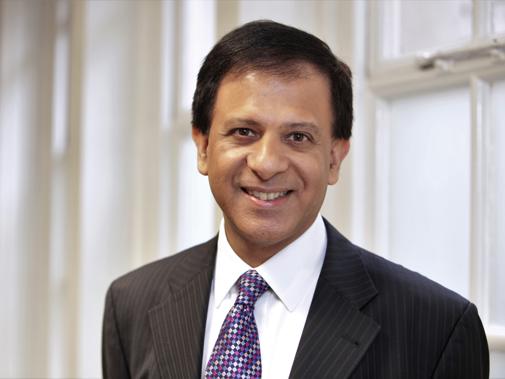I am proud the BMA hosted the International Conference on Physician Health, organised jointly with the American and Canadian medical associations this week.
The event, which was due to be ‘physical’ and in London last September, was postponed and rescheduled to run virtually because of the pandemic.
The conference – with a theme ‘A vision for humanity in medicine’ – could not be happening at a more crucial time for the profession as doctors around the world struggle on the front lines of a truly international effort to contain and overcome the COVID-19 pandemic.
This global public health emergency has tested and heaped pressure on the physical and mental health of doctors working in every medical specialty and in every corner of healthcare systems the world over.
Doctors across the globe are exhausted from the relentless and intense workload they have endured for more than a year. They have experienced significant changes to their working lives and managed the emotional effect of the risk to their own health and of their loved ones.
They have witnessed death and serious illness at unprecedented levels and have cared for patients cut off from family, friends and visitors, including having to treat colleagues struck down by this deadly disease.
The BMA’s own COVID-19 tracker survey research has shown that nearly half of doctors are suffering from depression, anxiety, burnout or another mental health condition which has been made worse during the pandemic.
Four-fifths of these said their conditions were worse than at the start of the pandemic. In addition, a quarter said they were more likely to be considering early retirement or a career break – an understandable reaction in the circumstances.
While the pandemic has triggered global tragedy, fear, and pervasive uncertainty it also offers an opportunity for profound learning.
With nearly 800 doctors from all corners of the world attending and led by international experts who are passionate about physician wellbeing, the conference has shared learnings including keynote sessions exploring the effect of the COVID-19 pandemic on doctors’ health and wellbeing as well as on physician health services, peer support, work-life balance, and avoiding burnout.
BMA deputy council chair David Wrigley chaired a session on perspectives and learning from COVID, while another council colleague, Clare Gerada, today draws on her experiences of running a support group for those bereaved following the death of a health professional through suicide. Overall, there has been a choice of more than 60 themed oral presentation sessions and almost 20 interactive workshops.
As a professional association, we are fully committed to support and safeguard the wellbeing of the profession in the UK. Today, I co-chaired with Dr Wrigley a meeting of the BMA wellbeing support stakeholders’ group. It includes representatives from charities, medical royal colleges and other organisations involved in supporting doctors.
We heard from Julian Sheather, a BMA specialist adviser, ethics and human rights, on the ethical dilemmas and moral distress invoked by COVID-19, and Louise Freeman, co-chair of the Doctors’ Support Network, on unreasonable adjustments for doctors with mental illness and how important culture in the workplace is to support them.
Dr Wrigley reflected on the tracker surveys the BMA has been running throughout the pandemic and how we can best retain doctors in its aftermath.
The meeting concluded with a talk from Ann Feloy who turned the tragic loss of her son to suicide into a charity that delivers suicide-awareness training. Ann updated us on a BMA Giving funded project called Dr SAMS which specifically focuses on suicide awareness in medical students.
Finally, I am delighted to announce our counselling service, which already offers free 24/7 telephone and online support to all doctors and medical students in the UK regardless of BMA membership, is to also offer face-to-face counselling.
We have access to 600 counsellors across the UK and will have more than 1,800 by June as more COVID-secure venues are confirmed. Our support services have seen a sharp increase in use, with a record number of doctors accessing the service – 468 last month compared with 331 in the same month last year.
We believe the provision of face-to-face counsellors, all of whom are members of the British Association for Counselling and Psychotherapy and bound by strict codes of confidentiality, will enable us to provide immediate and focused support for those in need.
As doctors, whoever we are, wherever we practise, we need to support each other through this pandemic – united and compassionate.
Chaand Nagpaul is BMA council chair

